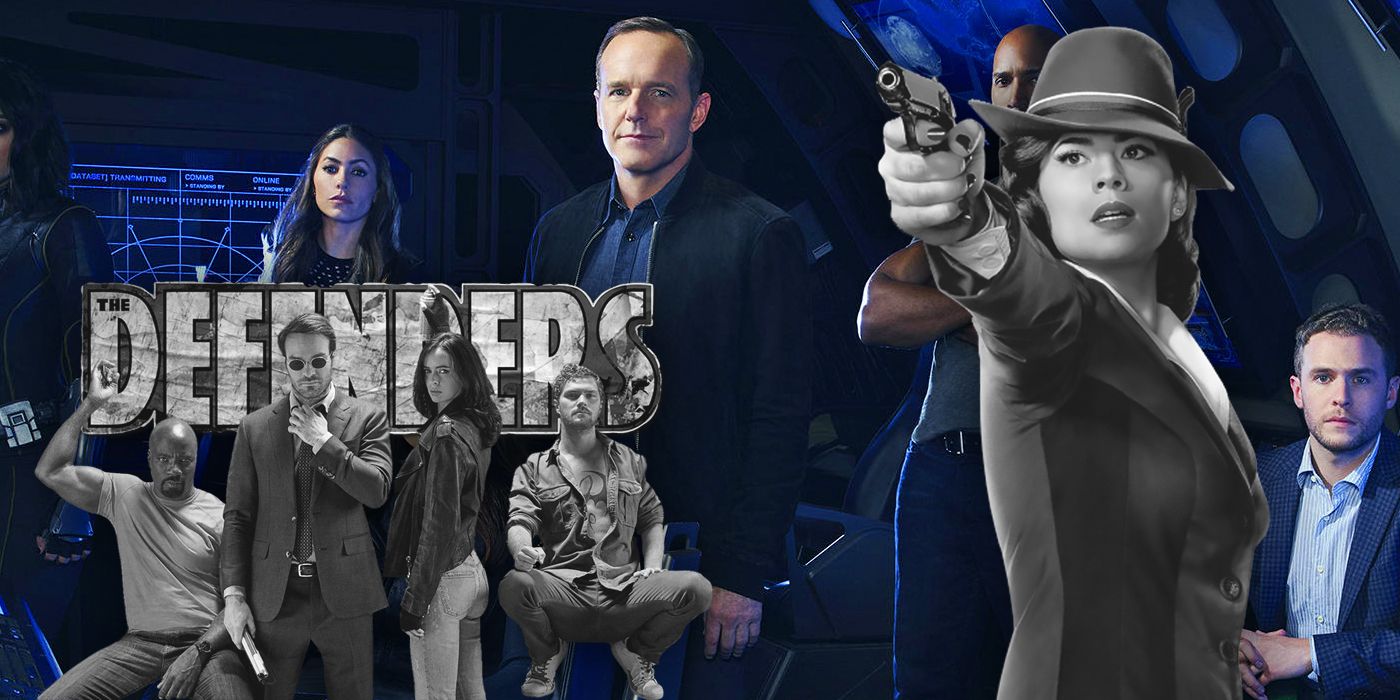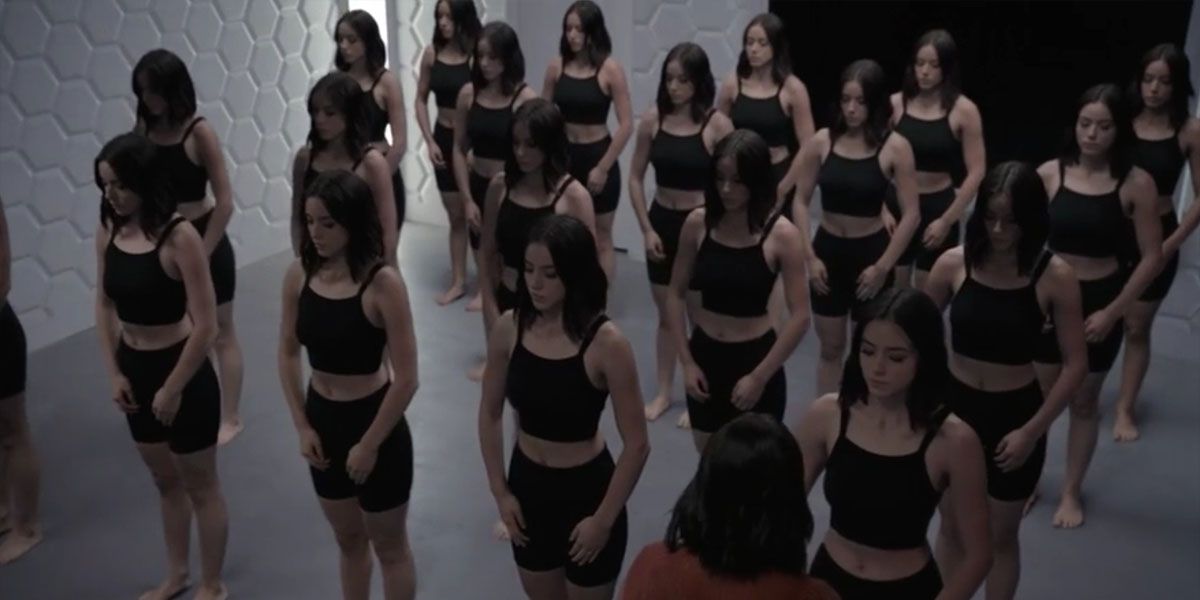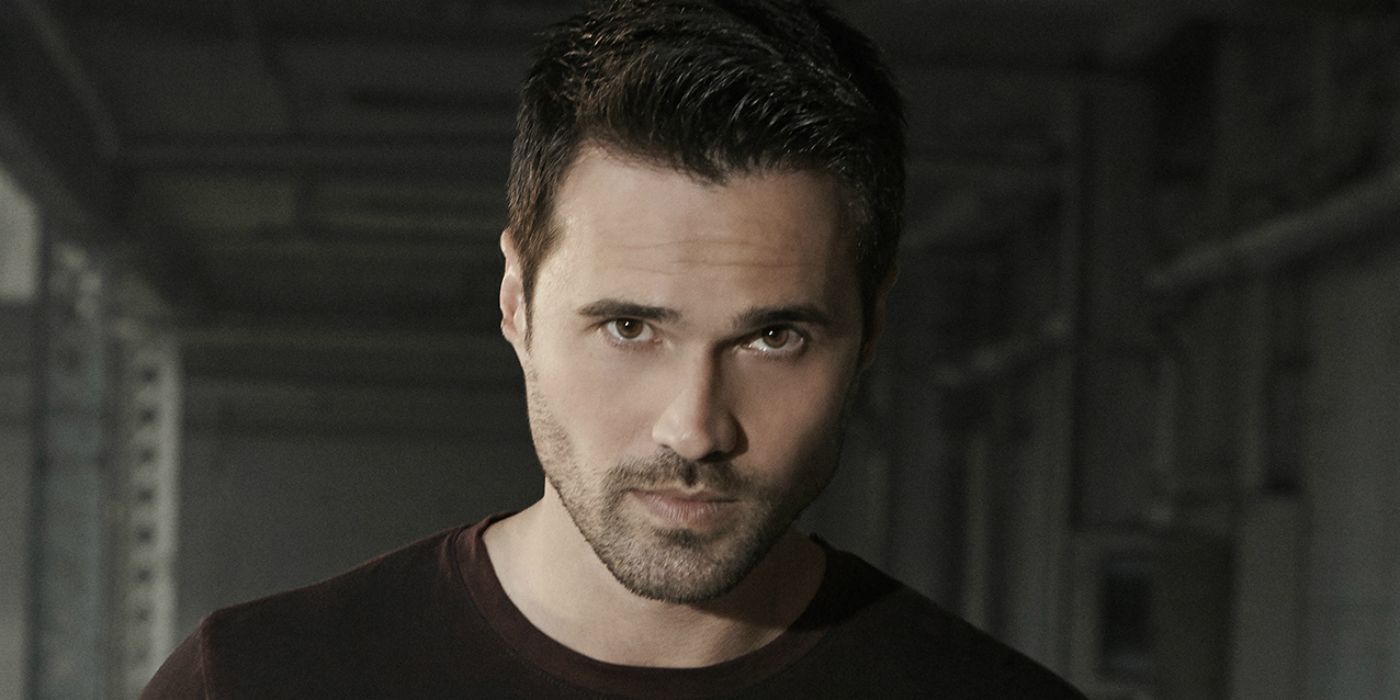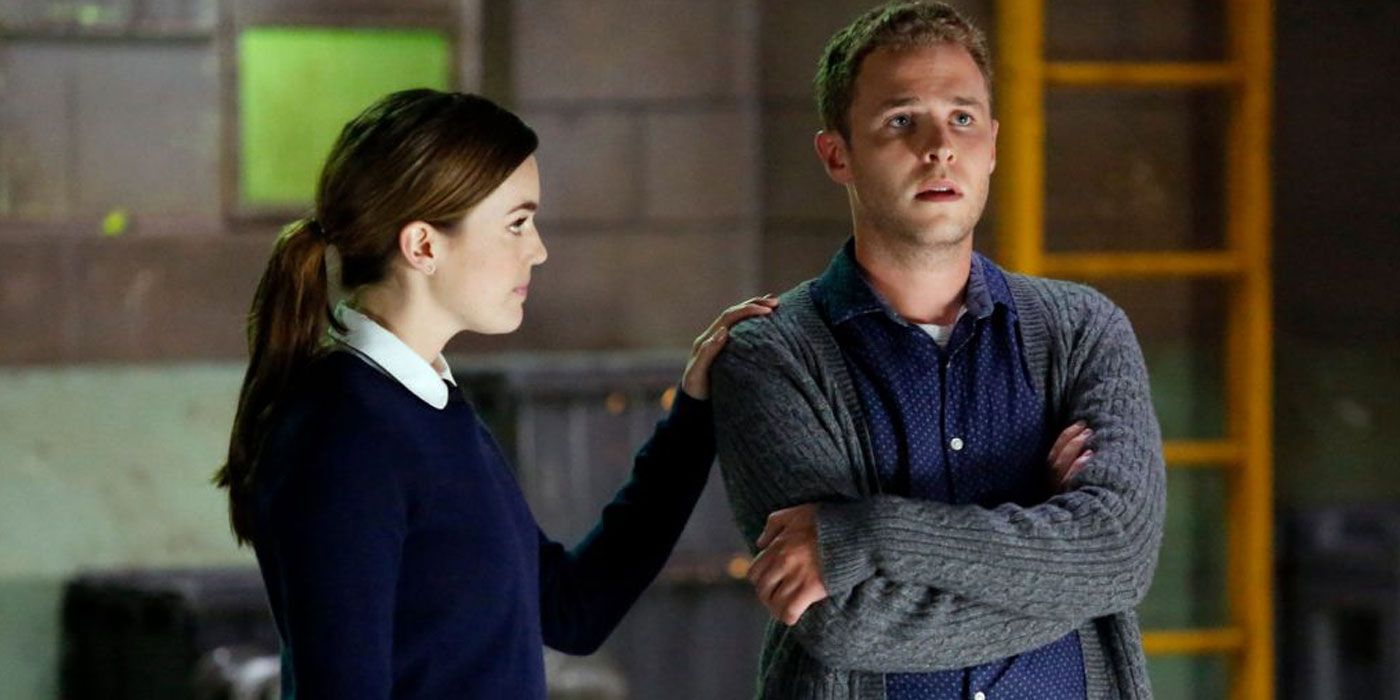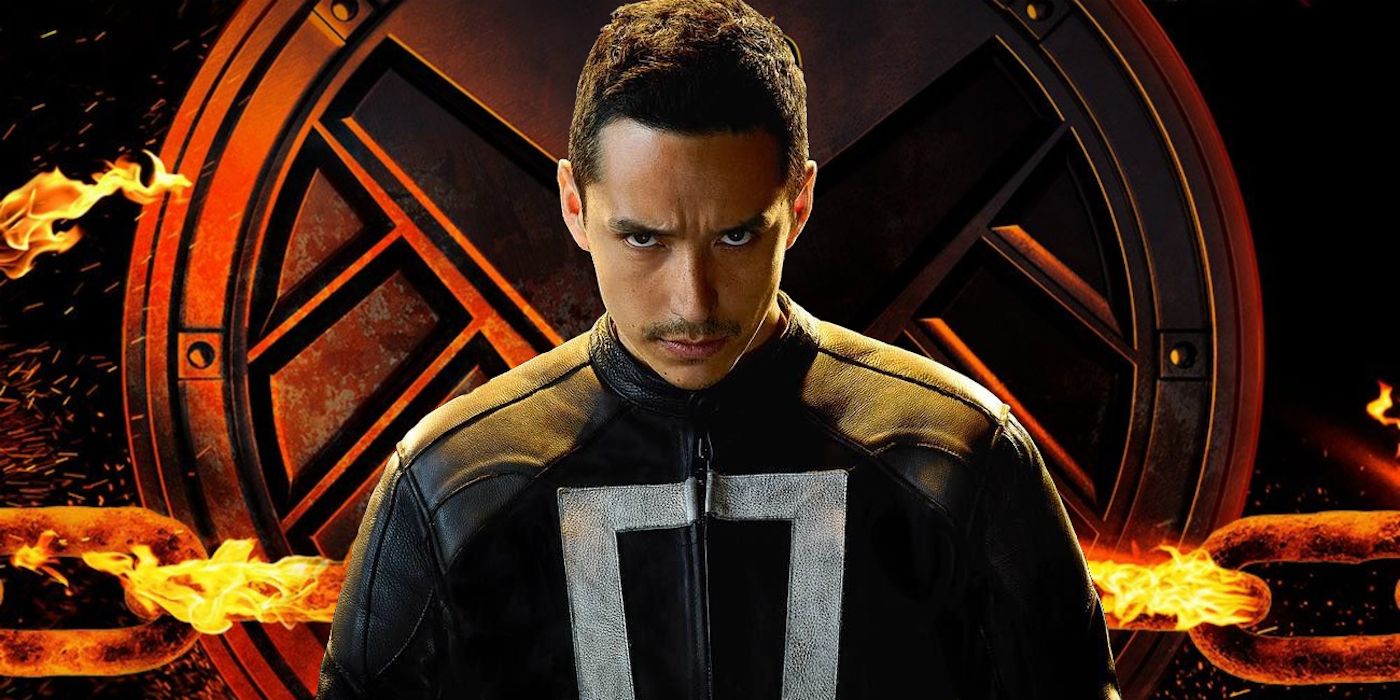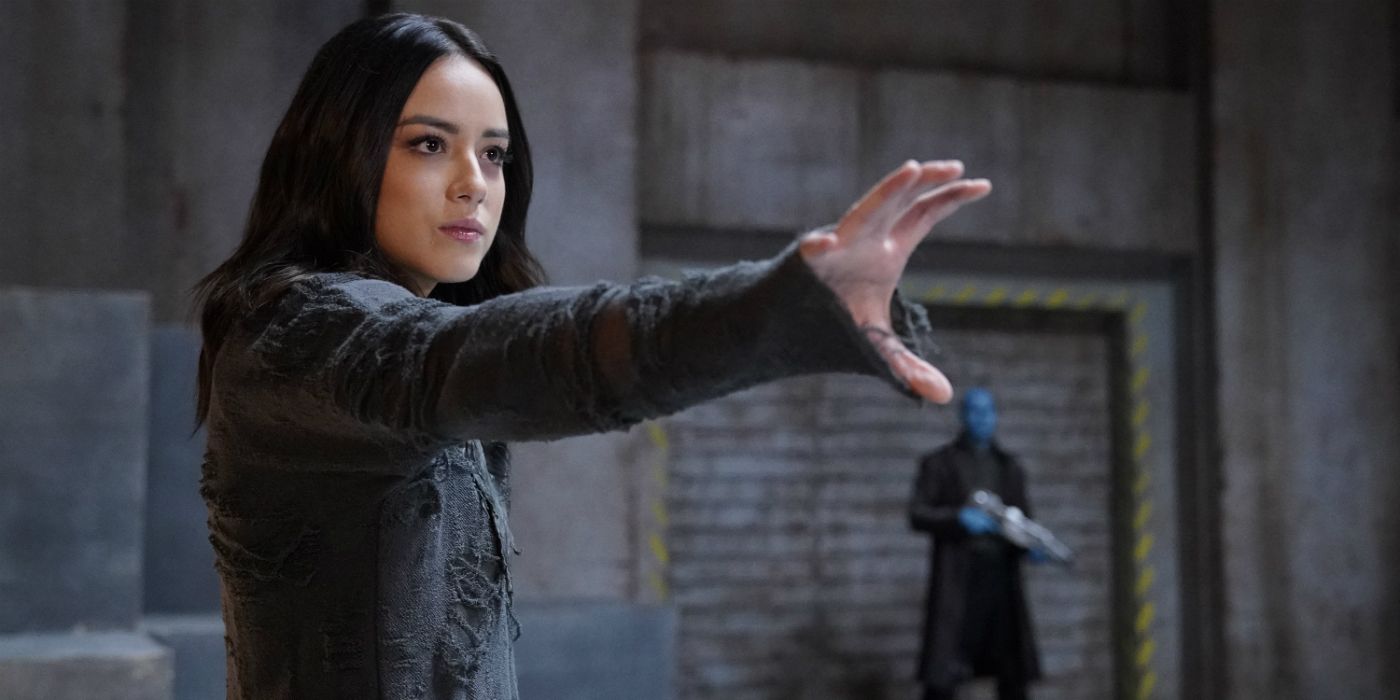When Agents of S.H.I.E.L.D. launched in 2013, few Marvel fans expected the series to still be running five seasons later. Now, the show is about to celebrate its 100th episode, a milestone that any superhero TV series can be proud of. Better yet, S.H.I.E.L.D. has actually become Marvel's best-reviewed TV series on Rotten Tomatoes, with recent seasons praised by fans and critics alike.This success is all the more remarkable when you consider that, back in Season 1, nobody was particularly enamored by the show. Agents of S.H.I.E.L.D. had a lackluster beginning, with far too many early episodes seeming to be nothing more than setup. Then, in a shocking twist, the series tied in with Captain America: The Winter Soldier and revealed S.H.I.E.L.D. had been successfully infiltrated by Hydra. It's never looked back since.RELATED: Agents of S.H.I.E.L.D. 100th Episode's Secret May Be Project BackslideSo, as we approach the 100th episode, it's time to take a look back and understand just how Agents of S.H.I.E.L.D. has become so successful.This Page: Season 4's Reinvention
Season 4's Reinvention Turned Agents of SHIELD Into A New Show
The last two seasons have actually seen Agents of S.H.I.E.L.D. benefit from two major strategic decisions. The first was ABC's decision to move the series to a later timeslot, which allowed S.H.I.E.L.D. to take a much darker, more violent tone. It's true that S.H.I.E.L.D. occasionally veered towards the gratuitous the first episode of Season 4 kicked off with Daisy getting dressed but in general, the show has handled this more mature approach well. There's no way Season 4's "Ghost Rider" arc could have worked before 9.00pm, while Yo-Yo's injury in "All the Comforts of Home" was both heartbreaking and brutal.
The second factor was the decision to split the seasons up into "pods". Although there are clear thematic and narrative links between the sub-arcs, each is characterized by a distinctive central theme. In Season 4, the pods were "Ghost Rider," "LMD," and "Agents of Hydra." The one focused on a sci-fi version of the supernatural, the second centered upon Aida's LMD program, and the third explored the brilliant concept of the Framework. Season 5 seems to only have two pods, one set in the future and the second back in the present, but it's already clear the show has pulled it off well again.
As Jeph Loeb explained, they're a way to overcome the problems of TV scheduling. "ABC runs the shows," he noted, "and then needs to take breaks to have specials and things like that, and you go into the holidays or the Olympics or something." Instead of telling one continuous story, with the audience "play[ing] catch-up" after several weeks' break, Marvel decided to break the story up into arcs. This approach allows the show to continually reinvent itself, while also creating potential jumping-on points. It's proven to be tremendously effective, and has given the show an unusual amount of flexibility.
SHIELD's Characters Have Become Incredibly Well-Developed
When Agents of S.H.I.E.L.D. began, the lead characters were often criticized as being rather flat and one-dimensional. Five seasons on, nobody makes that criticism anymore.
Related: How Agents of SHIELD's New Villain May Connect to Black Panther
The classic example is Brett Dalton's Grant Ward. Back in Season 1, fans initially complained that he was "too good to be true." How could a black ops spy and assassin really be so morally impeccable? Early attempts to give Ward depth, such as "The Well," were initially dismissed. Then, shockingly, the episode "Turn, Turn, Turn" stripped away Ward's mask and revealed he really had been "too good to be true." The Ward identity fans had seen in the first half-season was a cover, and Grant Ward was actually an agent of Hydra. It was a stunning reveal, transforming the series, and it's nicely symbolic of S.H.I.E.L.D.'s approach to characterization.
In Agents of S.H.I.E.L.D., character layers are always peeled away. Sometimes that means character arcs are a little slow-burn; it took far too long for Fitz and Simmons to get together, for example. Sometimes, though, it pays off in a big way. The subtle, consistent development for Ming-Na Wen's Agent May is a highlight; even now, five seasons on, May's actions in Bahrain continue to define her. Parallel May's relationship with the Inhuman Robin to her haunting actions in Bahrain, and the character development becomes tremendously impressive.
The actors, too, have gone from strength to strength. Chloe Bennett, for example, has grown in confidence and skill, and is now able to present an emotional nuance she'd never have been able to handle back in Season 1. In Season 4's "No Regrets," there's a moment when Aida tempts Daisy with the seductive concept of the Framework. So many conflicting emotions pass across Bennett's face in a matter of seconds, giving that scene a remarkable emotional depth.
Agents of SHIELD's Family Matters
The defining theme of Agents of S.H.I.E.L.D. is not espionage: it's family. Everything in S.H.I.E.L.D. is intimate and personal, shaped by the relationships between characters. The series goes to great lengths to ensure its greatest twists and reveals matter to the team on a personal level; when the show fired the gun on Terrigenesis, for example, it was through Daisy's experience of it. There's a sense in which the S.H.I.E.L.D. team really aren't very professional, but that often leads to mistakes. Coulson's act of vengeance, when he killed Ward on the planet Maveth, actually gave the Inhuman Hive a vessel in which to return to Earth.
Related: Why S.H.I.E.L.D. Isn't Helping Marvel's Inhumans
But that gives the series heart. Every character is defined by their relationships with the rest of the team, and the bonds that tie the group together are stronger than any family. Nobody was surprised when Coulson refused to leave Daisy stranded in a dystopian future; he thinks of her almost as a daughter. The relationships between Fitz and Simmons, Coulson and May, and Mack and Yo-Yo, have in equal parts excited and annoyed fans.
Even the secondary characters are defined by this theme of "family." According to Marvel's Jeph Loeb, that was why they chose to use Robbie Reyes's version of Ghost Rider; his relationship with his brother Gabe and his uncle Eli Morrow made him a perfect thematic fit. In "All the Comforts of Home," the series revealed that Dove Cameron's Ruby wasn't just the daughter of S.H.I.E.L.D.'s latest adversary she was also a fanatical villain in her own right. Given S.H.I.E.L.D.'s recurring themes, it shouldn't actually have been as shocking a reveal as it was.
Agents of SHIELD Built Its Own Mythology
When Agents of S.H.I.E.L.D. began, it was essentially Marvel's "tie-in" series. The show went to great lengths to create none-too-subtle ties to the movies, with a stream of references to the Avengers. The first season ultimately turned this into a strength, with Captain America: The Winter Soldier transforming the series beyond recognition. Little by little, though, S.H.I.E.L.D. has moved away from the films. Since Season 3, there have only been more subtle tie-ins.
There's a sense in which Season 2 was the defining period for S.H.I.E.L.D.. On the one hand, the series continued its tie-ins; one arc linked directly to Avengers: Age of Ultron, while Jaime Alexander's Sif made her last cameo in the show. On the other, the season saw S.H.I.E.L.D. take major steps in defining its own mythology. The Inhumans and Terrigenesis allowed S.H.I.E.L.D. to begin carving out its own identity. Although these arcs received mixed responses from fans at the time, they were a crucial part of the series's evolution.
RELATED: Agents of S.H.I.E.L.D.'s Captain America Civil War Connections Explained
Five seasons on, Agents of S.H.I.E.L.D. doesn't really do explicit tie-ins any more. Instead, the showrunners and writers look at the next Marvel movies, and identify key themes they want to develop. When Marvel Studios released Doctor Strange, for example, S.H.I.E.L.D. introduced the Ghost Rider. They did so within the confines of their own mythology, though; back in Season 1, S.H.I.E.L.D. had introduced the concept that particle accelerators could create "ghostly" beings who were out of phase with reality. That principle became the foundation for Season 4's "Ghost Rider" pod.
Agents of SHIELD Is A Great Superhero Series
There's a sense in which Agents of S.H.I.E.L.D. has succeeded by abandoning its initial concept. Back when Season 1 began, S.H.I.E.L.D. was touted as the story of everyday people who lived in an extraordinary world. As the years have passed, that concept has been forgotten; S.H.I.E.L.D. is now as much a superhero TV series as Supergirl or The Gifted. Terrigenesis has allowed the series to introduce countless "enhanced" individuals, and Daisy a.k.a. Quake has gradually stepped up, to the point where she's almost the series lead. Coulson, for his part, is now a cyborg, with a robot hand boasting all the bells-and-whistles you'd expect from a superhero show.
In line with this, the show's allies and enemies have gradually become more fantastical. In Season 1, the "big bad" was a corrupt S.H.I.E.L.D. agent who was trying to save his own life. By Season 3, S.H.I.E.L.D. was tackling an ancient Inhuman who survived by reanimated corpses. Season 3 introduced a new Inhuman hero, Natalia Cordova-Buckley's Yo-Yo Rodriguez; Season 4 upped the ante with Gabriel Luna's Ghost Rider. Fans were thrilled when Season 5 introduced Coy Stewart's Flint, although he sadly seems to have been written out of the plot at the moment.
In this light, it's best to view Seasons 1 and 2 as an origin story for the superheroes. Those early episodes lay the foundations, exploring the mystery of Coulson's resurrection and explaining just who Daisy Johnson really is. Now, the origin stories have been told, and the show is able to build on those foundations. It's true that S.H.I.E.L.D. took a little too long to redefine itself, but now the series handles superhero plots with a sure-footedness it could never have managed in those earlier seasons.
-
Five seasons on, Agents of S.H.I.E.L.D. has transformed itself into Marvel's best-rated TV series. The show's future is currently uncertain; the showrunners have prepared for a potential cancellation, although ABC President Channing Dungey is "cautiously optimistic" about the series's future. Whatever happens, though, Marvel Television has good reason to be proud of Agents of S.H.I.E.L.D.

